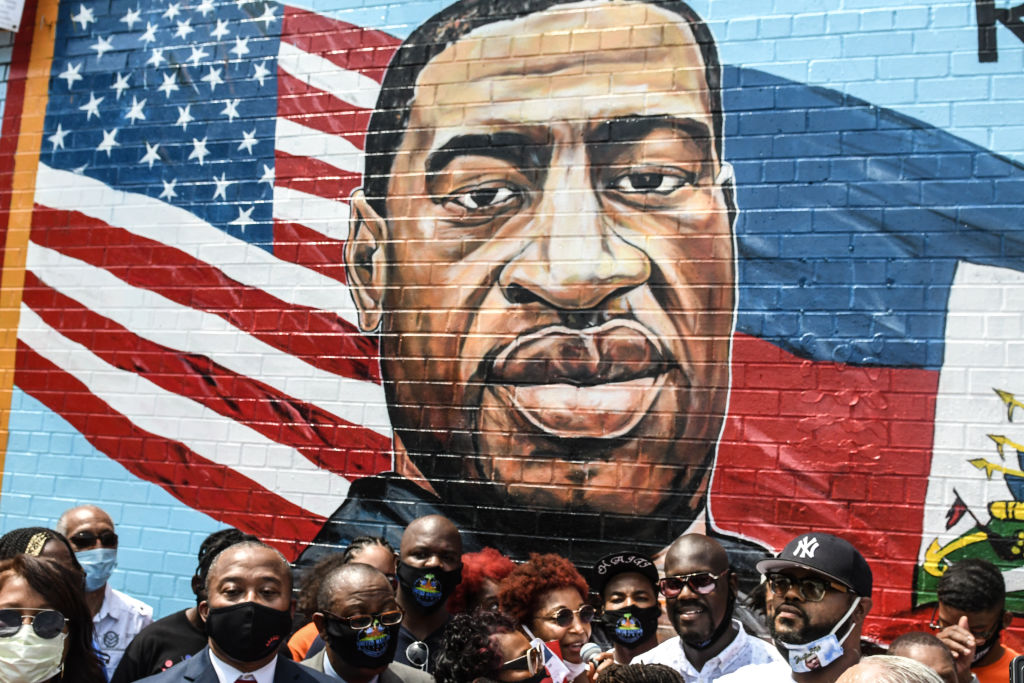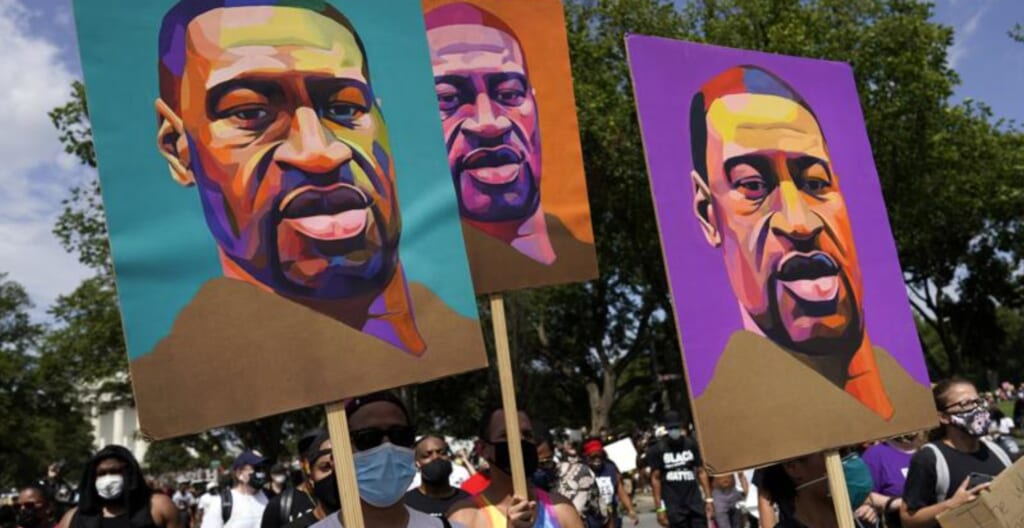Five ways George Floyd really changed the world
“My daddy changed the world,” Floyd’s 7-year old daughter, Gianna, would say during his passing. “Daddy changed the world.”

It’s been one year since the world lost the beloved Black father to police injustice. He might be gone, but his impact on social justice endures.
May 25 marks the one-year anniversary of the murder of George Floyd by police in Minneapolis, Minnesota. The viral video footage shook a world that was already suffering from a deadly pandemic and became fed up with the societal injustices that continued to afflict. Floyd’s death reawakened a racial uprising that America hadn’t seen in decades — ushering in a new wave of activism and reminder that Black lives indeed do matter.
“My daddy changed the world,” Floyd’s 7-year old daughter, Gianna Floyd, would say during his passing. “Daddy changed the world.”
Here’s five ways George Floyd has continued to change the world.
Global protesting and social justice demands skyrocketed.
Following Floyd’s death, massive protests and calls for social justice have never looked the same. Large diverse crowds of people hitting the streets have become less frowned upon as mainstream media outlets and celebrities have given such efforts more coverage. As a result, public support for Black Lives Matter has notably increased since last summer in comparison to previous years. Current global protests, such as the calls for peace in the Middle East and Stop Asian Hate, have gotten instant traction from the influence that George Floyd protests have had in the previous year.
Read More: What is really holding up the George Floyd policing act from Biden’s desk?
National conversation around policing continues to be talked about.
Before Floyd’s murder, media coverage of Black people being killed by police was less frequent. Today, policing continues to be a major topic and issue being tackled on cable news, classrooms, town halls, and in Congress. With NYC Pride making changes to their police inclusion this summer and some school districts rethinking how they implement law enforcement in the classroom — it’s obvious this will be a conversation that’s not going anywhere anytime soon.

Major corporations made Diversity, Equity, and Inclusion efforts a focal point in their operations.
Who could forget when UberEats and other dining apps gave free delivery for Black-owned restaurants? It’s hard to ignore the rise in historic diverse hires across various film, political, media, business, and healthcare industries. During the racial uprisings, tons of Fortune 500 companies issued statements, revised diversity action plans, and new commitments to ensuring a better workspace for Black people. It’s been a year, and while there is still work to be done — change has been more visible than before.
Democratic Party has made police accountability a major policy matter.
Once treated as a taboo topic, Black Lives Matter is now being said without hesitation from the current President of the United States, Joe Biden. Unlike his racist predecessor, Biden and Vice President Kamala Harris have not ignored the issue of race and policing in their agenda. Locally, Democrats have invoked measures to Defund the Police and reduce such powers in everyday life. While much has been asked of the White House and Congress in terms of more radical police accountability, one can at least acknowledge they are more receptive to progress in this regard than Republicans — who are just about incoherent at this point on criminal justice reform.
Record number of support for HBCUs.
The rise in national interest and fiscal support for Historically Black Colleges and Universities (HBCUs) have catapulted from the legacy of George Floyd. For example, North Carolina A&T State University, the nation’s largest HBCU, raised $88 million since its fiscal year began last summer — almost six times what it typically fundraises annually. The Thurgood Marshall College Fund, which garners necessary funding for public HBCUs, have also reported huge funds. “With the social unrest with George Floyd, we have seen an uptick in the amount of support for our HBCUs in this country,” Thurgood Marshall College Fund President Harry L. Williams recently told NPR.
Gianna Floyd was right. Her daddy has definitely changed the world.
Have you subscribed to theGrio’s “Dear Culture” podcast? Download our newest episodes now!
TheGrio is now on Apple TV, Amazon Fire and Roku. Download theGrio.com today!
